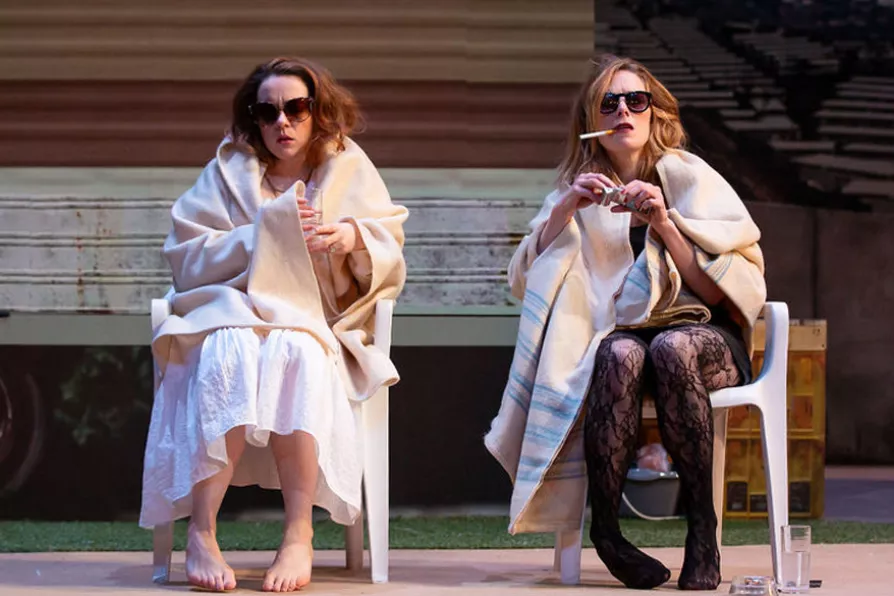The Bard stands with the Reformers of Peterloo, and their shared genius in teaching history with music and song

 Jess Hardwick and Shauna MacDonald in David Greig's Two Sisters
[Jess Shurte]
Jess Hardwick and Shauna MacDonald in David Greig's Two Sisters
[Jess Shurte]
Two Sisters
Royal Lyceum Theatre, Edinburgh
THERE is a moment in David Grieg’s new play about nostalgia for the lost horizons of adolescence when the three adult characters, having partied themselves to oblivion, are gently laid to sleep like Bunraku puppets by a chorus of attentive teenagers. It is an unexpectedly moving piece of stagecraft that emphasises Grieg’s theme: that the adolescent, and the memory of adolescence, manipulates the adult.
Emma (Jess Hardwick) a smug and pregnant lawyer, has rented a caravan at the holiday park in Fife where the family once spent summers. She wants to write a novel. Her older sister (Shauna MacDonald) has been caught shagging the plumber and is taking time out from her marriage and kids. And the hippy hunk Lance (Erik Olson) who spun the discs decades before is still there as handyman and DJ.
Thus begins a gentle dance of recognition, rivalry and regret.

MARY CONWAY is disappointed by a star-studded adaptation of Ibsen’s play that is devoid of believable humanity













